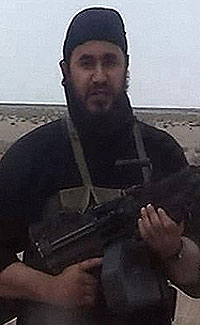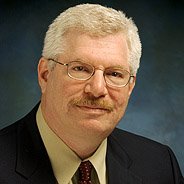 A customer rents a DVD from a Redbox machine at a Springville, Utah, McDonald's. The fast-food chain hopes to capitalize on the program, in which videos cost a dollar a night. Photo Credit: George Frey / Getty Images
A customer rents a DVD from a Redbox machine at a Springville, Utah, McDonald's. The fast-food chain hopes to capitalize on the program, in which videos cost a dollar a night. Photo Credit: George Frey / Getty ImagesTechnology expansion pace quickens within niche retail environments. There was a time that niche marketing was about defining the brand through product awareness and positioning. Now retailers are able to introduce additional product and service sales opportunities through stand-alone Kiosks … but is this a good thing?
Excerpts from AP via the Detroit News -
Want a DVD with those fries?
McDonald's hopes to profit with vending machine that rents movies for $1 per night.
By Joshua Freed / Associated Press
MINNEAPOLIS -- The big red vending machine at the McDonald's whirrs and hums and spits out rental DVDs of "Chicken Little" and "King Kong" -- and maybe, if McDonald's is lucky, profits.
Machines run by McDonald's Corp. subsidiary Redbox Automated Retail have popped up in hundreds of Golden Arches restaurants in six cities in an experiment to see whether they drive more customers into the stores. Rental chain Movie Gallery is experimenting with DVD rental machines, too, saying the machines will make rental transactions easier for customers and make its stores more efficient.
The spread of DVD rental machines comes as rental stores are struggling under a business model that hasn't changed much from the mom-and-pop video stores of 20 years ago. The rental business has suffered from the sale of cheap DVDs, rent-by-mail services like Netflix Inc., and expanding video-on-demand from cable companies.
"We think it's a tremendous op-portunity," said Greg Waring, Redbox's vice president of marketing. "We think we're providing a new model for the industry that is going to be difficult for the traditional retailers to compete against."
--
McDonald's came up with the idea in 2003 as it looked for ways to draw more people into its restaurants.
It began experimenting with the machines in Denver in 2004 and now has 750 machines in restaurants in five cities, including the Twin Cities. It's measuring their popularity and whether they draw more people into the stores.
Its subsidiary Redbox isn't waiting to see how the McDonald's experiment turns out. It has placed the machines in 75 grocery stores, and has signed agreements for 400 more grocery locations, including Stop & Shop and Giant stores owned by Royal Ahold NV in the Northeast.
--
The Kliners, of Kenosha, Wis., used the machine to avoid signing up at Blockbuster to rent a single movie.
"With kids, it's easier this way, because they're not running all over the store," Teresa Kliner said while daughters Olivia and Analiese played on the slides at the restaurant's indoor playground.
Read All>>
And this from RetailWire (AP story) –
The Invasion of the DVD Rental Kiosks
By George Anderson
A&P and McDonald's are just two of the retail and foodservice companies looking to drive additional customer traffic by placing DVD rental kiosks in their stores.
TNR Entertainment Corp. (The New Release), the nation's largest owner/operator of DVD rental kiosks in grocery outlets, announced yesterday that it had signed an agreement with A&P to place rental kiosks in 30 company stores covering Delaware, Maryland, New Jersey and Pennsylvania.
According to a TNR press release, the company's kiosks dispense DVDs to roughly 1 million consumers a month. Individual units store up to 200 DVD titles that are updated on a weekly basis. Rentals cost consumers $1 a day.
McDonald's is also pursuing the DVD rental opportunity but instead of using a third-party to supply and operate kiosks, it has created its own vending unit, Redbox Automated Retail.
Read All>> (subscription required)
Additional questions:
Do DVD rental kiosks offer retailers the opportunity to drive frequency of consumer visits and additional profits either through the rentals themselves and/or add-on sales made while customers are in the store?
Are DVD rental kiosks viewed as a smart merchandising and customer service move by retailers?












